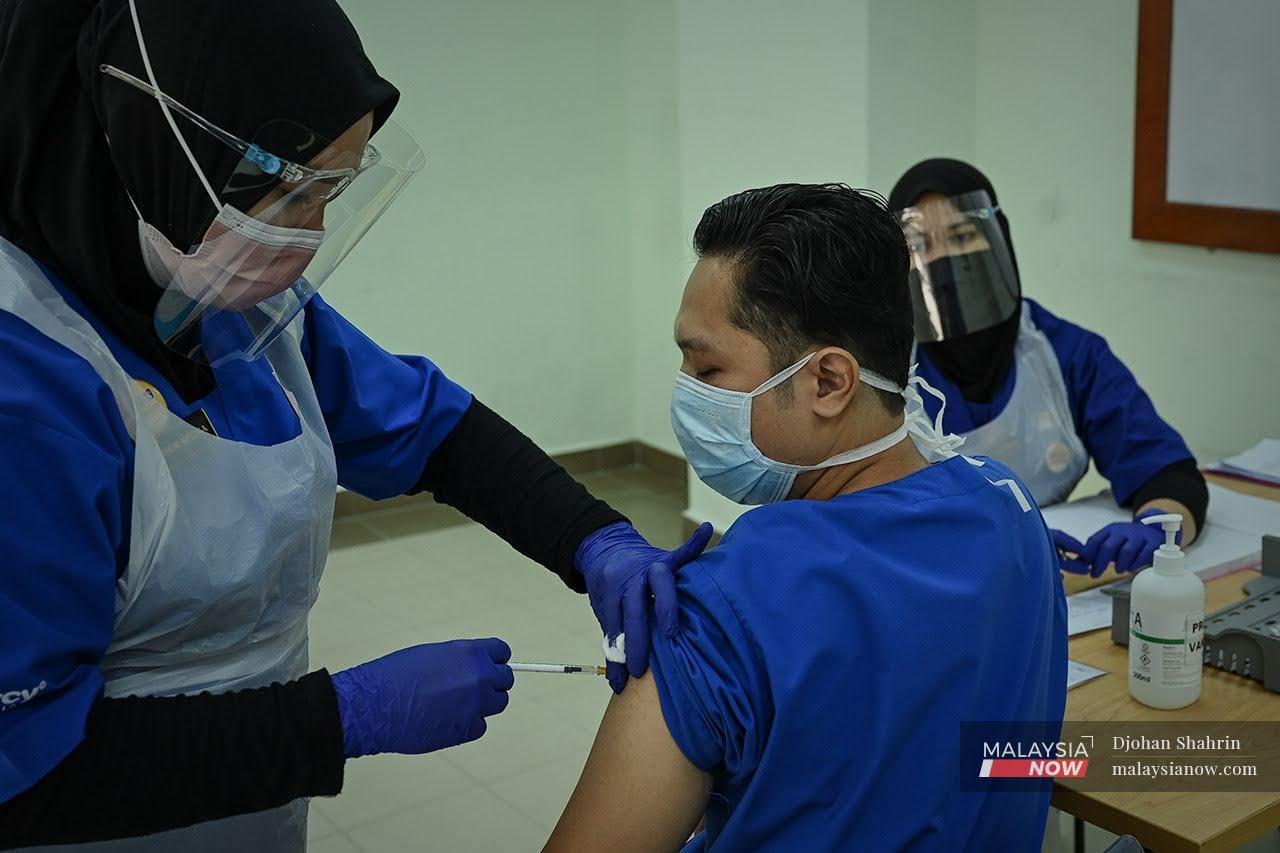High protection after one vaccine dose for Covid-19 survivors, study shows
A person who has had Covid-19 and receives a single dose of the Pfizer or Moderna vaccines is equally or better protected than someone who never had Covid and got two doses, according to the study.
A person who has had Covid-19 and receives a single dose of the Pfizer or Moderna vaccines is equally or better protected than someone who never had Covid-19 and got two doses, according to a study.
“We hope this data… will help shape more nuanced vaccine policy,” co-author Viviana Simon, a professor of microbiology at the Icahn School of Medicine at Mount Sinai in New York told AFP Thursday.
For people who have had Covid-19 before, “the first vaccine dose actually acts as a booster, making the second dose unnecessary”, she added.
The paper was published in the New England Journal of Medicine.
Simon and colleagues looked at blood samples from 110 people, 67 of whom had not previously been infected and 43 who had.
All participants received either the Pfizer or Moderna vaccines, which are based on new RNA (ribonucleic acid) technology.
They found that participants who had been infected with the coronavirus before they received their first shot “rapidly developed uniform, high antibody titers within days after vaccination.”
“Titer” refers to blood concentration.
The scientists repeatedly sampled the participants and found that in the days following the first shot, antibody levels in those with previous infection were 10 to 45 times higher than those who weren’t previously infected.
By the time both groups received their second shots, antibody levels among those previously infected still registered six times higher than those who weren’t previously infected.
But “no increase in antibody titers was observed in the Covid-19 survivors who received the second vaccine dose,” the scientists wrote, indicating the booster was of limited benefit for people previously infected.
No substantial difference in antibody production was noticed between the two vaccines.
The more severe a person’s case of Covid-19, the more antibodies their body produces to clear the infection – but for the purpose of this study, the Covid-19 survivors were mostly mild-to-moderate cases who were infected in March or April 2020, added Simon.
The team also looked at whether side effects differed in people with previous infection versus those without, studying 230 participants.
Overall, there were no serious side effects that led to hospitalisation.
Though there were limitations in the amount of data collected, vaccine recipients with preexisting immunity were found to have a higher frequency of mild to moderate side effects like fatigue, headache, chills, muscle pain, fever, and joint pain.
Simon explained this was consistent with the idea that the first dose was like a booster shot for people who previously had Covid-19.
Research has shown that people who haven’t had Covid-19 tend to get more side effects on their second shot.
“Two advantages of offering Covid-19 survivors a single dose is that it would limit side-effects experienced, and it would allow us to expand vaccine doses,” she concluded.
Subscribe to our newsletter
To be updated with all the latest news and analyses daily.
